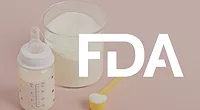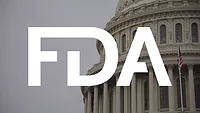FDA Updates on Prevention Strategy for Cronobacter Contamination of Infant Formula

Image credit: Floortje/E+ via Getty Images
The U.S. Food and Drug Administration (FDA) has provided an update on its work to prevent Cronobacter sakazakii illnesses associated with consumption of powdered infant formula. FDA published a draft outline of its prevention strategy in November 2022, following the prolific February 2022 recall of Abbott Nutrition powdered infant formula contaminated with C. sakazakii.
FDA engagements with the infant formula industry and other stakeholders showed support for the draft outline, and therefore the strategy will continue without any additions. FDA may add actions to the strategy over time, as appropriate.
As of September 20, FDA is providing an update on actions that have been taken to advance the goals of the strategy, including:
- Continuous collaboration with industry, coalitions, academia, and consumer groups to better understand and explore ways to enhance the safety of powdered infant formula
- Issuance of a letter to the powdered infant formula industry to share current safety information and urge industry to take prompt action to improve processes related to the safe production of powdered infant formula
- Beginning the hiring process for staff to establish a dedicated cadre of investigators for conducting infant formula inspections
- Beginning the hiring process for staff to support the new Office of Critical Foods
- Supporting the Council of State and Territorial Epidemiologists (CSTE) position on elevating Cronobacter to a nationally notifiable disease, which was successfully adopted by CSTE on June 29, 2023
- Updating and reorganizing infant formula related materials on FDA.gov to provide both consumers and industry with more accessible information on C. sakazakii concerns for infant formula
- Initiating work with the National Advisory Committee on Microbiological Criteria for Foods (NACMCF) to address knowledge gaps regarding C. sakazakii.
The updated prevention strategy webpage includes a full list of actions that have been taken to date.
Aside from actions taken under the prevention strategy, FDA has continued to enhance its regulatory oversight of the infant formula industry, including the issuance of three warning letters to infant formula firms in August 2023. The letters reinforce the importance of instituting and maintaining appropriate corrective actions when pathogens are detected to ensure compliance with the FDA’s laws and regulations.
FDA is also continuing work under its Immediate National Strategy to Strengthen the Resiliency of the U.S. Infant Formula Market; collaborating with the National Academics of Science, Engineering, and Medicine (NSAEM) to help inform long-term plans for strengthening the infant formula market; and working to enhance and expedite infant formula reviews. Infant formula firms are also now required to develop, maintain, and implement, as appropriate, risk management plans to identify and evaluate risks to the supply of the critical food, such as infant formula, and ways to mitigate such risks. This is a new requirement that was mandated by U.S. Congress in the Food and Drug Omnibus Reform Act of 2022.
Looking for quick answers on food safety topics?
Try Ask FSM, our new smart AI search tool.
Ask FSM →









